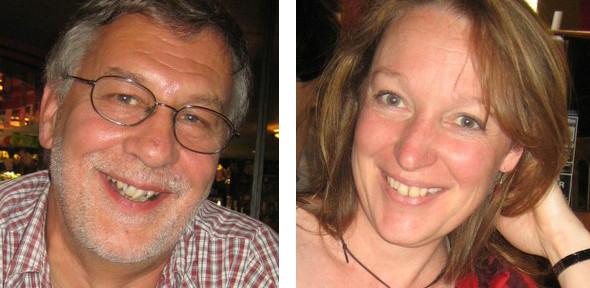
A paper by Dr Dick Fenner and Dr Heather Cruickshank has won a Highly Commended Award at the Literati Network Awards for Excellence 2013 (Emerald Publishing).
One of the most impressive pieces of work the editorial team has seen throughout 2012.
International Journal of Sustainability in Higher Education
The paper: "Exploring key sustainable development themes through learning activities" was published in the International Journal of Sustainability in Higher Education and was chosen following consultation amongst the journal's Editorial Team, many of whom are eminent academics or practitioners.
The paper was selected as it was "one of the most impressive pieces of work the team has seen throughout 2012". The paper describes teaching strategies on the MPhil in Engineering for Sustainable Development with respect to the interactive exercises and assignments the students undertake, and the sustainability learning outcomes these are designed to achieve.
The paper's abstract is below:
Purpose – The purpose of the paper is to examine how a number of key themes are introduced in the Master's programme in Engineering for Sustainable Development, at Cambridge University, through student-centred activities. These themes include dealing with complexity, uncertainty, change, other disciplines, people, environmental limits, whole life costs, and trade-offs.
Design/methodology/approach – The range of exercises and assignments designed to encourage students to test their own assumptions and abilities to develop competencies in these areas are analysed by mapping the key themes onto the formal activities which all students undertake throughout the core MPhil programme. The paper reviews the range of these activities that are designed to help support the formal delivery of the taught programme. These include residential field courses, role plays, change challenges, games, systems thinking, multi criteria decision making, awareness of literature from other disciplines and consultancy projects. An axial coding approach to the analysis of routine feedback questionnaires drawn from recent years has been used to identify how a student's own awareness develops. Also results of two surveys are presented which test the students' perceptions about whether or not the course is providing learning environments to develop awareness and skills in these areas.
Findings – Students generally perform well against these tasks with a significant feature being the mutual support they give to each other in their learning. The paper concludes that for students from an engineering background it is an holistic approach to delivering a new way of thinking through a combination of lectures, class activities, assignments, interactions between class members, and access to material elsewhere in the University that enables participants to develop their skills in each of the key themes.
Originality/value – The paper provides a reflection on different pedagogical approaches to exploring key sustainable themes and reports students' own perceptions of the value of these kinds of activities. Experiences of running a range of diverse learning activities within a professional practice Master's programme are shared.

